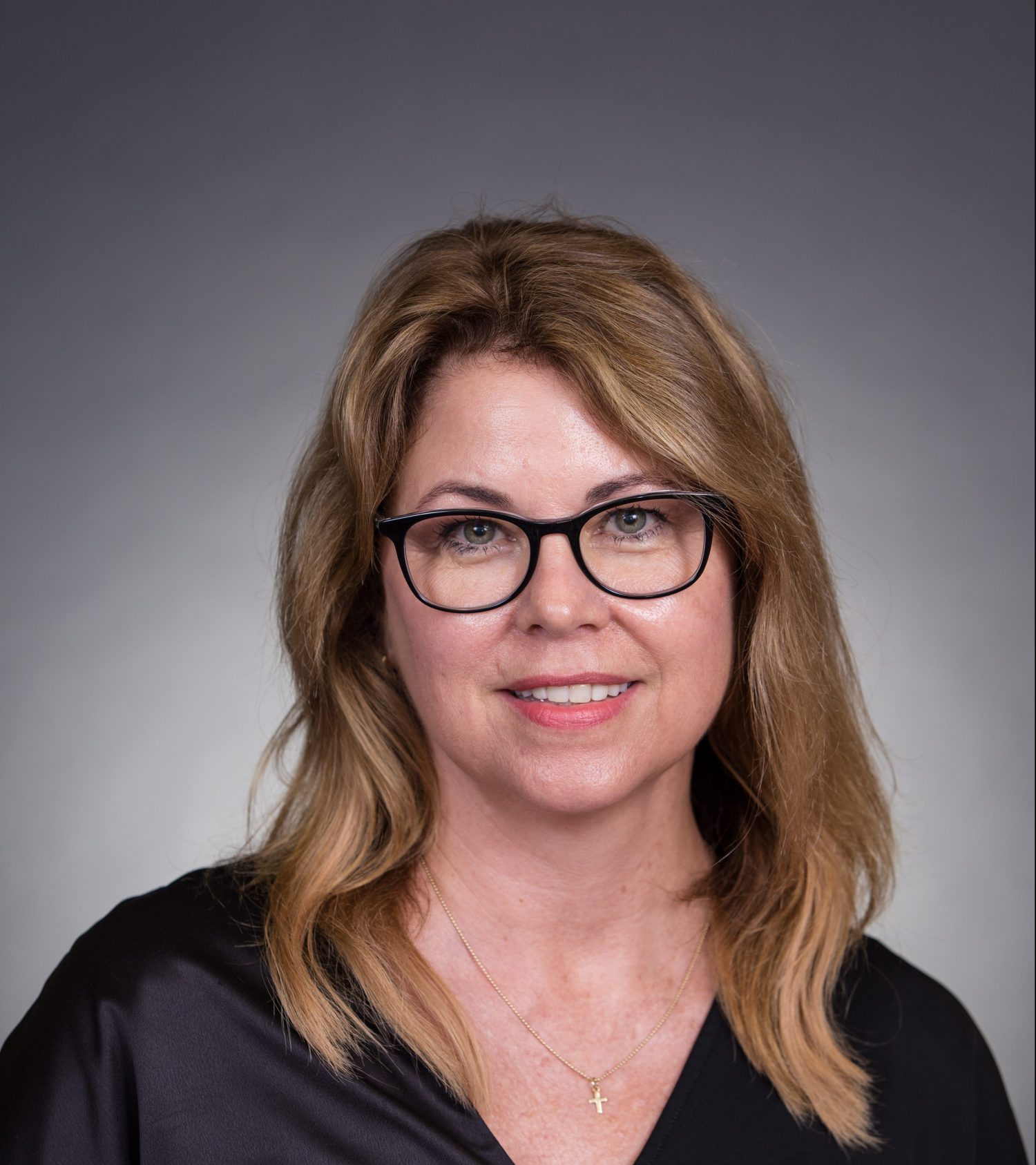By Kimberly Sanchez, Intern
In health care, knowledge is power. A knowledgeable patient is able to make informed decisions about their health and wellness. As the Consumer Education Specialist for the UCLA Health, CENTER for Nursing Excellence, Jill Scherrey, MSN, RN, NPD-BC works to provide patients and healthcare consumers the information they want and need for optimal health. A current PhD candidate at the UCLA, School of Nursing, Jill is a pioneer in patient education at UCLA Health, where she works with a wide range of UCLA Subject Matter Experts (SME) to create health literate and culturally competent patient-facing education materials.
As an education developer, Jill works with clinical experts in all health care areas to design patient education. She begins the collaborative process with a series of questions for the SME, including “who is the intended learner/audience?” and “what do you want the learner to know?“ Next, Jill works with the SME to develop the learning outcomes for the content, ensuring the ability to measure the education’s effectiveness in achieving the desired outcomes.
The title “Consumer Education Specialist” was created by the UCLA CENTER for Nursing Excellence Director Lee Galuska PhD to demonstrate the choice that patients and consumers possess in terms of where they obtain their health care and health information. This concept drives Jill’s desire to meet the learning needs of all patients and healthcare consumers at every phase of their health journey.
One of Jill’s primary projects this year is a collaboration with the UCLA Transplant Research and Education Center (TREC), to develop comprehensive education for lymphoma and leukemia patients and health consumers. The collaboration benefits from the recently created Consumer Education Development Team (CEDT), co-led by the Director of TREC, Amy Waterman PhD and a small team of health writers and editors. Jill has also collaborated with the TREC team on a recent renal transplant patient education project, which produced digital and written modular patient education for renal transplant candidates, recipients and donors. Jill shares Dr. Waterman’s passion for the renal transplant population and her doctoral thesis focuses on the My Transplant Coach decision-aid that Dr. Waterman helped design. The driving force behind Jill’s desire to create health literate, easy to understand content, is to make information accessible and available on all platforms for all people. “I believe that educating people appropriately and effectively is our ethical responsibility as health providers. You can’t separate care from how we communicate with those we care for” she stated in a recent phone interview.
The goal of Jill’s current research is to evaluate the My Transplant Coach decision-aid on the treatment choices made by patients with kidney failure at UCLA. MTC is unique because it offers patients individualized survival data based on the patient’s treatment choice such as living or deceased donor kidney transplant. Jill hypothesizes that the use of the animated decision-aid will lead to shorter kidney transplant wait times and improved survival rates among kidney transplant recipients, and potentially a reduction in organ discard. Following this study the MTC interactive decision-aid video will be placed on the Connie Frank Kidney Transplant Center (CFKTC) waiting room iPads, the CFKTC website, and sent to the MyUCLA Health accounts of kidney disease patients.
Jill explained that people learn best in a low-stress environment and when they are exposed to content repeatedly over time, and because adult learners are problem-centric they tend to learn about issues or concepts that matter to them. For patients with kidney disease that means learning about treatment options when they learn their kidneys are diseased or failing. By creating bite-sized amounts of content in learning modules that can be delivered to patients electronically at specific points in time, the learner can retain more of the information they need to make informed choices regarding their health.
Because access to the internet can be an issue for some patients, Jill is an advocate of providing free wi-fi in all UCLA medical offices and dialysis centers for patient use. Providing each patient a tablet during office/clinic visits and during dialysis treatments, can further reduce some of the barriers patients may face with receiving education digitally. It’s Jill’s goal to empower patients by reducing barriers to patient education. By creating health literate and culturally competent education materials delivered on multiple platforms, she hopes to increase access to needed information in all patient populations.

